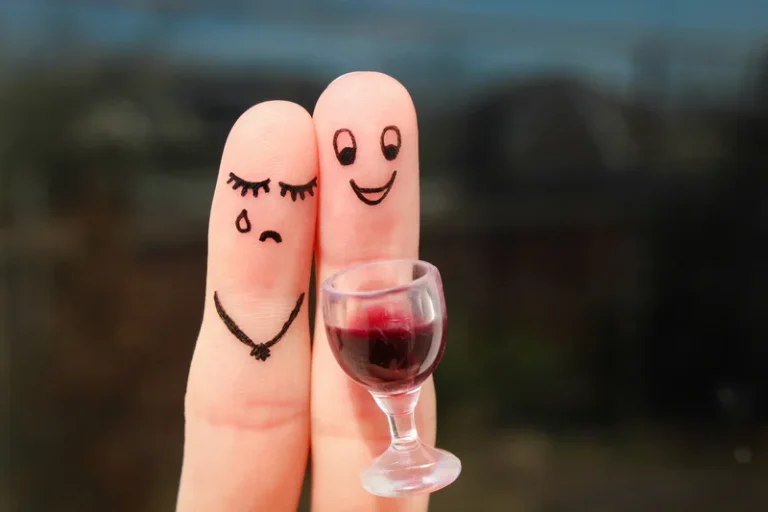
Similar to the other modalities described here, administration of these psychosocial treatment strategies for alcohol problems can be less straightforward with individuals who have comorbid anxiety and AUDs. Clients with social anxiety disorder, for example, may have difficulties with several elements of standard can alcohol cause panic attacks psychosocial approaches for alcoholism. Many treatment programs, as well as AA, heavily rely on the mutual help in group settings. Individuals with social anxiety, however, may be reluctant to attend group therapy or AA meetings or may avoid meaningful participation should they make the effort to attend.

How Alcohol and Anxiety Are Linked?
Research in a 2019 article suggests that up to 50% of people having treatment for AUD also meet the criteria for at least one anxiety disorder. Additionally, panic attacks can be triggered because of the effect alcohol has on GABA, another brain chemical that normally has a relaxing effect. When you drink, do you couple this with eating pretzels, pizza or sweets? We tend to pair up our vices, and not only drink alcohol but also eat highly dense, problematic foods. Your body can have an uncomfortable sensation the next day as a result, which can feel like a nervous energy or anxiety. Quitting alcohol can also lead to long term anxiety from extended withdrawal symptoms, known as protracted withdrawal.
Is Anxiety Associated with Alcohol Tolerance and Dependence?
Standard delivery of RPT also may require a pivotal adaptation when applied to clients with comorbid anxiety disorders. RPT emphasizes the importance of identifying an individual’s unique risk factors (e.g., high-risk situations) for relapse and incorporates skill-development techniques to help reduce the likelihood of lapses and to manage them should they occur. It is widely understood in the RPT literature that negative emotional states are particularly perilous to recovery efforts. A classic analysis of over 300 relapse episodes implicated negative emotional states, conflict with others, and social pressure to use in nearly 75 percent of the relapses studied (Cummings et al. 1980). To prevent relapse resulting from negative emotional states such as anxiety, RPT recommends stimulus control (i.e., avoidance of high-risk situations, with escape as the next best option) as a first-order strategy (Parks et al. 2004).
Talking to a Health Care Provider About Your Mental Health
- Regular exercise, a consistent sleep schedule and reduced caffeine and sugar intake can also help reduce anxiety.
- Anywhere from 7% to 10% of the general population has such an allergy, though it affects about 35% of those with Asian backgrounds.
- While alcohol can make your panic attacks worse, alcohol itself doesn’t cause panic attacks on its own.
- Administration of these methods for comorbid individuals is complex and may require modification of standard procedures to yield the greatest efficacy.
- What happens is that once you’ve quit drinking alcohol – long after the withdrawal symptoms are over (which we’ll get to in a second) – your brain is essentially left without healthy strategies for coping with even the most mild stresses.
- If you suspect that you have an alcohol use problem, effective treatments are available.
The DSM-5 TR lists shortness of breath, or feelings of choking or being smothered, as symptoms of a panic attack. Like nearly all symptoms of a panic attack, a high or irregular heart rate is https://ecosoberhouse.com/ linked to the fight-or-flight response. As your body is pumping out blood to important organs and large muscle groups to aid in your fighting (or running away), your heart will work overtime.
The authors suggest someone with AUD has a higher risk of developing an anxiety disorder and vice versa. This article explains the links between alcohol and anxiety and how to manage anxiety disorders and AUD in daily life. It’s possible to have anxiety after drinking alcohol without having an anxiety disorder. In addition, if you’re noticing your anxiety levels increasing after drinking, try cutting down on how much you drink. Plus, take note of how your mood is each day — if you’re feeling extra on edge already, try and go against the temptation of remedying that with alcohol.
Treatment for Alcohol Use and Anxiety Disorders

Additionally, alcohol affects neurotransmitter levels in the brain—the chemical messengers responsible for how we think, feel, and behave. Over time, these changes can make it harder for you to relax when you aren’t drinking and may lead to persistent worries, intrusive thoughts, and other anxiety symptoms. Studies have found that heavy drinkers have increased cortisol levels due to alcohol’s effects on the body. Elevated cortisol levels can lead to feelings of anxiety or restlessness. We turned to our staff of psychiatrists for everything you need to know about the connection between alcohol and anxiety, including when it’s time to seek help. Some panic attacks have signs that can resemble a physical problem, like a heart attack.

How can I support myself and others with panic disorder?
What’s the prognosis (outlook) for panic attacks and panic disorder?
- In other words, alcohol is not all bad – but it does have the potential to damage your psychological and/or physical health.
- If you are in this situation, try to remember that a panic attack by itself cannot kill you.
- Therefore, a health care provider may prescribe them only for brief periods of time if you need them.
Treatment options for anxiety
- Dr. Lin has held an academic appointment at UTHealth, and he has spent his professional career supervising and teaching medical students and psychiatry residents.
- No one should assume the information provided on Addiction Resource as authoritative and should always defer to the advice and care provided by a medical doctor.
- Like nearly all symptoms of a panic attack, a high or irregular heart rate is linked to the fight-or-flight response.
- At the center of Dr. Lin’s clinical approach is a strong emphasis on establishing trust and using a collaborative approach to help patients develop an individualized and cohesive plan so that they are able to achieve their goals.
